#rating 8
Text
Day eight:
Another day, another number. Today we have number 8, a fine addition to our rating series, because already we see that it is a result of 2 to the power of something, and those numbers are always a sort of nice number, so a little bonus for 8. I also think most of the reasons people like 8 is exactly because of that, though maybe not directly. For example, the square of 8 is 64, the normal amount to make a full stack in Minecraft, which also extends to 32 and 16, too. A negative thing about 8, though not a strong one, is that it really only is known and liked for its relation to 2, besides that, it is a sort of plain number. Just a featureless even number, only being carried by 2. Though, still, I think it is a nice number by itself, even without 2 and the perks it brings. Overall, I'd say 8 is a good number, though not by a lot.
Honourable mention of the day: Eight of diamonds.
#rating numbers#numbers#rating#number#rating number 8#rating 8#rating number eight#rating eight#8#eight#alottatagsthatareuseless#implayingmoddedminecraft#yay#imgoingtoburndownavillage#somebodyshootme#andnotinthegame
0 notes
Text

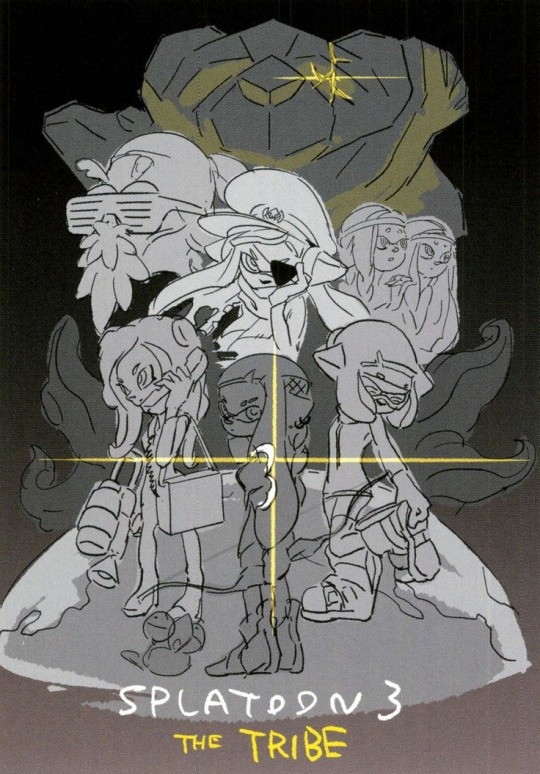

There’s always that part of me that’s gonna wonder how different things could have been if the developers weren’t constantly banging their heads against a line they’re not meant to cross
#splatoon#splatoon 2#splatoon 3#octo expansion#return of the mammalians#side order#agent 8#agent eight#agent 3#captain 3#agent 24#agent three#captain three#agent four#agent 4#neo agent 3#craig cuttlefish#people tend to forget this is a series made for small children#a lot of that stuff we saw in the side order teaser most likely would have caused Nintendo to bump up the rating of the game
2K notes
·
View notes
Text
TMA Gerry, dressed in head-to-toe black, with died black hair and tattoos, gaunt as a skeleton, smoking a cigarette: Who're you?
TMAGP Gerry, dressed in bright colors, with natural hair and no tattoos, plump-cheeked, drinking herbal tea: I'm you, but traumatized differently.
#this is how im visualizing the new guy at any rate#the magnus protocol#8 running on empty#tmagp spoilers#my magnus protocol stuff#original post#gerard keay#queue cause i'll be at work when the episode airs#500 notes!#1000 notes!#2000 notes!
2K notes
·
View notes
Text



Luffy doodles :D
#one piece#monkey d luffy#moonel.art#I just got home from prom! it was a fun event tho i'd rate it 8/10
1K notes
·
View notes
Text
christian universalism strikes again
(Reposted from Twitter)
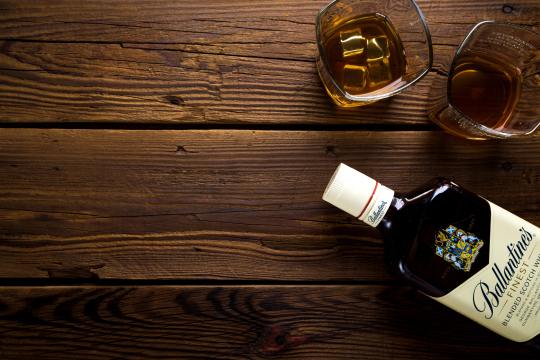
So a rabbi I know came back from LA pretty jazzed about a Jewish addiction treatment facility there called Beit T'shuvah and so we talked about their approach and that got me curious about non-AA approaches to dealing with addiction which, my friends, was fascinating.
I’ll admit that almost everything I know about AA is more or less from The West Wing. I'm fortunate in that no one in my immediate family has dealt with substance abuse issues, and as far as I know, none of my close friends are alcoholics. My knowledge is pop culture knowledge.
But hearing about Beit T’shuvah was very interesting to me because:
I'd heard that a lot of people who aren't Christian have a hard time with AA because it's so Christian.
The difference in philosophy was subtle at first glance but actually paralleled a lot of the differences between Judaism and Christianity if you dug into it.
Anyway, I got curious about whether success rates were different for Christians vs. non-Christians and started googling. I didn't find much in the way of the data I was looking for, but I did find something a lot more disturbing, which is that the whole 12-step thing is not science-based. At all. For example:
The National Center on Addiction and Substance Abuse compared the current current state of addiction treatment to medicine in the early 1900s, when there weren't a lot of standards for who could practice medicine. In order to be a substance abuse counselor in many states, you don't need much more than a GED or high school diploma.
A 2006 survey found "no experimental studies unequivocally demonstrated the effectiveness of AA or TSF approaches for reducing alcohol dependence or problems."
And I want to make clear here that I'm not saying AA is bad--clearly it's helped people. The problem is that it's touted as a universal approach, which is a problem when it's not based on any sort of actual science.
AA claims that its success rates for people who "really try" are 75%. (And boy does that mirror gaslighting diet language.) But the most precise study out there that's NOT coming from AA (https://amazon.com/dp/B00FIMWI1O) put actual success rates at 5-8%. One of the major textbooks on treating addiction ranks it at 38th out of 48 on its list of effective treatments.
So just like most fad diets, it fails for almost everyone who tries it, and then blames the individual for its failure.
A glaring issue is that the 12 steps don't really acknowledge--or provide any guidance or structure for dealing with--other mental/emotional health issues. That’s a giant problem when people with substance abuse issues have higher than average rates of those issues. (Take a moment to consider how the victim-blaming approach of “if you didn’t succeed, it’s because you didn’t try hard enough” is going to intersect with someone’s major depression.)
Now, if 12-step programs were just one available treatment approach out of many, this wouldn’t be that big of an issue.
But 12% of AA members are there because of court orders. Our legal system is requiring people to undergo treatment that is:
Christian-based
Not scientifically supported
A failure for the vast majority of people
I mean, here's a pretty comprehensive breakdown that talks about the lack of scientific support for it, alternative treatments (like those in Finland, and naltrexone), and the fundamentalist origins of AA.
The founder was a member of the Oxford Group, an evangelical organization that taught that all human problems stemmed from fear and selfishness, and could be solved by turning your life over to divine providence, basically. Sound familiar? He based AA on those principles, and given that the only alternative was "drying out" in a sanatorium, and that AA members would show up at bedsides there and invite inpatients to meetings, it must have looked really enlightened to people. In 2022, it bears a queasy resemblance to evangelizing to people in prison, literally a captive audience.
To be fair--to their credit--they were some of the first people out there saying alcoholism was a disease, and not a moral failing. But they didn’t treat it like a disease when it came to testing treatment options:
Mann also collaborated with a physiologist named E. M. Jellinek. Mann was eager to bolster the scientific claims behind AA, and Jellinek wanted to make a name for himself in the growing field of alcohol research. In 1946, Jellinek published the results of a survey mailed to 1,600 AA members. Only 158 were returned. Jellinek and Mann jettisoned 45 that had been improperly completed and another 15 filled out by women, whose responses were so unlike the men’s that they risked complicating the results. From this small sample—98 men—Jellinek drew sweeping conclusions about the “phases of alcoholism,” which included an unavoidable succession of binges that led to blackouts, “indefinable fears,” and hitting bottom. Though the paper was filled with caveats about its lack of scientific rigor, it became AA gospel.
And then Senator Harold Hughes, who was an AA member, got Congress to establish the National Institute on Alcohol Abuse and Alcoholism, which promoted AA's beliefs, and sometimes suppressed research that conflicted with them:
In 1976, for instance, the Rand Corporation released a study of more than 2,000 men who had been patients at 44 different NIAAA-funded treatment centers. The report noted that 18 months after treatment, 22 percent of the men were drinking moderately. The authors concluded that it was possible for some alcohol-dependent men to return to controlled drinking. Researchers at the National Council on Alcoholism charged that the news would lead alcoholics to falsely believe they could drink safely. The NIAAA, which had funded the research, repudiated it. Rand repeated the study, this time looking over a four-year period. The results were similar.
The standard 28-day rehab stay, prescribed and insured:
Marvin D. Seppala, the chief medical officer at the Hazelden Betty Ford Foundation in Minnesota, one of the oldest inpatient rehab facilities in the country, described for me how 28 days became the norm: “In 1949, the founders found that it took about a week to get detoxed, another week to come around so [the patients] knew what they were up to, and after a couple of weeks they were doing well, and stable. That’s how it turned out to be 28 days. There’s no magic in it.”
The last sentence here (bolded for emphasis) is especially chilling.
That may be heartening, but it’s not science. As the rehab industry began expanding in the 1970s, its profit motives dovetailed nicely with AA’s view that counseling could be delivered by people who had themselves struggled with addiction, rather than by highly trained (and highly paid) doctors and mental-health professionals. No other area of medicine or counseling makes such allowances.
There is no mandatory national certification exam for addiction counselors. The 2012 Columbia University report on addiction medicine found that only six states required alcohol- and substance-abuse counselors to have at least a bachelor’s degree and that only one state, Vermont, required a master’s degree. Fourteen states had no license requirements whatsoever—not even a GED or an introductory training course was necessary—and yet counselors are often called on by the judicial system and medical boards to give expert opinions on their clients’ prospects for recovery.
And, again, the idea that this is the One True And Only Way to deal with alcohol abuse leads to medical professionals ignoring research and treatment options that could be helping people. They are, in essence, taking all this completely on faith.
There has been some progress: the Hazelden center began prescribing naltrexone and acamprosate to patients in 2003. But this makes Hazelden a pioneer among rehab centers. “Everyone has a bias,” Marvin Seppala, the chief medical officer, told me. “I honestly thought AA was the only way anyone could ever get sober, but I learned that I was wrong.”
Stephanie O’Malley, a clinical researcher in psychiatry at Yale who has studied the use of naltrexone and other drugs for alcohol-use disorder for more than two decades, says naltrexone’s limited use is “baffling.”
“There was never any campaign for this medication that said, ‘Ask your doctor,’ ” she says. “There was never any attempt to reach consumers.” Few doctors accepted that it was possible to treat alcohol-use disorder with a pill. And now that naltrexone is available in an inexpensive generic form, pharmaceutical companies have little incentive to promote it.
I'm not saying that AA is bad. I'm saying its hegemony is bad. It clearly is effective for some people--a minority of people. But it's not for the majority of people, and that's a problem when it's being prescribed by courts (and doctors) as if it's a one-size-fits-all approach.
It’s not an accident that a Christian approach to treating addiction presents itself as the One True Way For All Humankind, insists that courts and doctors privilege it, demands that people take its effectiveness on faith, and blames anyone for whom it doesn’t work for not believing/trying hard enough.
Hegemony is a problem.
(Photo credit: Pixabay)
#christian hegemony#addiction#christian supremacy#aa#maybe courts should be recommending treatment with a better than 8% success rate and actual science behind them just saying
2K notes
·
View notes
Text

Redraw of the cape post, because that entire concept deserved better than the illustration I gave it.
#just give 12 a cape it's all I ask#yes I was watching Musketeers again#doctor who fanart#twelfth doctor#clara oswald#whouffaldi#twelveclara#guess who watched Heaven Sent + Hellbent again#I only cried half a tear but I did get Really sweaty#which is an improvement from last time#it took me about 8 years to getting round to watching those 2 episodes because Face the Raven destroyed me so hard#I'm pretty sure I couldnt eat for a whole day after FtR aired#although at that point I had been steadily absorbing Clara's personality into my own for a few years#I don't have a personality I stole it from Clara Oswald#read all of the 12clara books. listened to the audiobooks. Running out of content at a concerning rate#had to buy another comic#one day I'll have consumed all 12+Clara content. Then I'll just have to take matters into my own hands (make it myself)
400 notes
·
View notes
Text
A reminder to everyone that ao3 bookmarks are public by default and everyone, including the author, can see what you write. If you're going to do a rating system or add critique, make your bookmarks private!
#always nice to see something you've worked endless hours on called 8/10#but at least I'm not the person they rated 3/10 !#and went on about how horrible and cringe the fic was#and how they hated it#fandom matters
491 notes
·
View notes
Text

delayed side effects 🍬
everyone goes a little crazy for me drawing her so this is for you guys, even though i've also been brainrotting over them for awhile
#belly kink#stuffing kink#inflation kink#body expansion#biggening over the course of a few days is severally under rated imo#also everyone should watch episode 21 of i.mpulse's h.c season 8#them <333#prlscntmn#hrmtcrft
476 notes
·
View notes
Text
me, innocent, a victim: [goes to look for something in my phone's photoroll]
me: [is violently assaulted by gb art]
donatello/reader; gn reader; rated t
When you open your eyes, you see, to your shock, Donatello.
Well. It’s hardly surprising that he’s in your bed, considering he’s been getting pretty good at the whole mind-melting orgasm thing. Maybe half of the nights of your week lately have ended up with your eyes drinking in the sight of him caging you in, your wrists aching with the tightness of his fingers holding them above your head, and your ears singing with the sound of him whining your name when he comes. It’s incredible—he’s incredible—and you’d be pressed picking a time in your life you’ve been happier.
But this. This is… new.
He’s not wearing his mask. That’s the first thing that catches your attention, once you’re able to move past the totality of his presence in the gentle rays of dawn streaming through your window. He looks… softer, somehow. Different. There’s a closeness to him, physically, literally, that makes you tremble a bit in your very skin. Like you’ve never really been with him before, absurd as it sounds even in your own head. He’s touched you the way no one else has—the way no one else ever, ever will, if you have your way about it—but this. This.
God. He’s beautiful, you think, gazing at each inch of his uncovered skin and searing it to your mind. You’ve always been attracted to him, but here, it takes your breath away. The curve of his beak beneath his eyes, the angle of his jaw, the squish of his cheek where he’s sleeping on your pillow, the little puffs of air that snooze out with each breath; all of it entrances you, making your lips quiver.
Slowly, gently, almost hating yourself for it, you reach out. An impossible temptation to resist. The very tips of your fingers on his face, tracing from temple to chin, over and over as you memorize this unseen part of him. Odd, how it feels like you’re pining, yearning for him, when you still feel the aches in your body from how thoroughly he’d had you last night.
…Though, you suppose, that was him having you. And this is—
—this is you having him.
Donnie’s lips curl at the corner, and you know you’re busted. Suddenly shy, you fight the urge to pull away, to pretend you weren’t consuming the sight of him. It’s a vulnerable feeling, but you’re rewarded when he opens one eye, blearily meeting your gaze.
“…Aren’t you usually the one nagging me to sleep?” he says in a mumble, causing you to smile sheepishly.
“I… couldn’t resist,” you admit quietly, your touch garnering a bit of weight now that he’s awake.
“Had to check and make sure I was real under my mask?” he teases, and it’s tempting to follow him down the path. Tasting bravery on your tongue, you resist.
“Too handsome not to,” you tell him honestly, cupping his cheek with your palm. You feel the hitch in his breath, the warmth that spreads onto his cheeks even as his scales don’t allow for a blush. “Needed to.”
Donnie stares for a moment, then gives a breathy laugh, reaching out to grasp your hand from his face and bringing it so he can press a kiss to your palm. This, too, is new—this quiet, non-sexual intimacy. It makes you feel warm, a bit like you’re the one who’s been basking in the sunlight, not him.
“You’re obnoxiously romantic in the morning, huh?” he murmurs. He doesn’t sound displeased. Giddily, you wiggle closer, feeling him reach out to slide a hand to your back to help pull you close, until only a sigh separates your face and his, your legs so tangled together only the roughness of his scales tells them apart.
“…I could be obnoxiously romantic all the time,” you tell him, looking between his eyes as the other opens, seeing the tender expression on his face. “…If you wanted me to.”
A comforting, familiar, possessive hand cups your nape, his thumb tracing the soft skin beneath your ear. A dazzling glissando of sensation runs along his touch, making your eyes flutter for a moment before you lick your lips and focus on him again.
Finally, he smiles, an honest little thing that transfigures your heart into a tiny hummingbird. “Yeah,” he says, his tone as warm as the coming morning. “That… sounds great.”
And then, as if sealing a promise, he pulls you close for a kiss even softer than the sheets that ensconce you both. Humming into it, you melt, nuzzling his beak with a lustrous glow beneath your skin. Then—slowly, gently—your fingers again find unmasked skin, loving, claiming, confident now in the long rays of dawn.
#i. i dont even remember what i went in here to look for anymore 8|#the eternal catch-22 of Needing to have all of their art at my fingertips. but also. oh dear god it's always there. hovering. haunting.#i just. snapped and wrote this. im. im so sorry. i couldn't contain myself#tmnt#rise#my fic#donatello/reader#rating: t
171 notes
·
View notes
Text
greatest line delivery ever
#to his vas credit‚ its a very stilted line of dialogue lol#almost done with the cartoon. its pretty okay. id rate it like 7-8/10#clawdeen wolf#frankie stein#monster high#its a solid kids show. the animation is super cute#dracula‚ frankie‚ and cleo are the best characters
247 notes
·
View notes
Text

#my adventures with superman#maws#teen titans 2003#harley quinn#dc comics#young justice#just to make it clear#there's definitely good live action dc projects#take the battinson movie and the dark knight#those are not only some of my dc movies#but they're some of my favorite movies of all time#with that being said#i really feel like dc misses the mark with a lot of their live action stuff#meanwhile when it comes to dc's animated stuff#the people who work on it really do put a lot of tlc into and it shows#i don't think i've seen an animated project that i'd rate below a 8/10#(i'm probably going to get blasted for that)
180 notes
·
View notes
Text
I think OPLA broke the shitty live action adaptation curse.
Like sure, there were a ton of chances and streamlining happening all over the place but it works. Visuals are great, casting is incredible and the show was a great ride with tons of fun moments and easter eggs and I almost cried a few times and got chills many times.
It definitely has the spirit of the original story in it.
As an OP fan from 2005 on, this was a good adaptation from my view. Someone who's not into One Piece will be better equipped to tell you if it does the necessary expositon well enough to follow the story as a newbie. I've seen some comments that OPLA succeeds in that pretty well, but again, I'm not the best judge.
Now I'll need to dig up the OST to listen to the orchestral versions of Binks' Sake and We Are. Happy sailing!
271 notes
·
View notes
Text
january reads


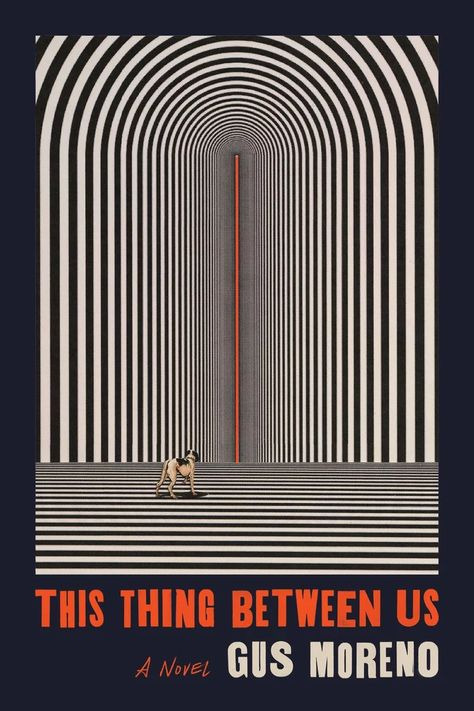
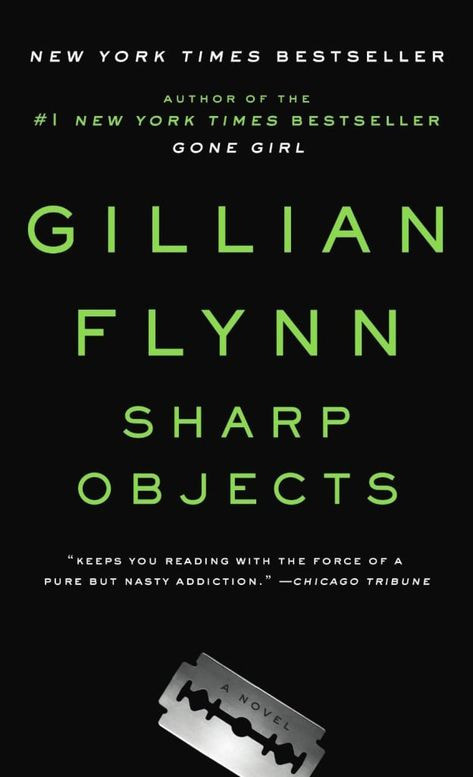


[1] this thing between us by gus moreno
★★★★★
"I don't want to get over anything, Thiago. I want to sink as far as it'll take me."
[2] dog songs: poems by mary oliver
★★★
"Finally, the slick mountains of love break over us."
[3] big swiss by jen beagin
★★★
"I once saw you at a farm stand. I was there to buy tomatoes, but I noticed you in the meat section, pulling venison cubes out of a freezer, and I fell in love with your forearms. I obsessed about them for weeks."
[4] decreation by anne carson
★★★
"I am excess. Flesh. Brain. Breath. Creature who breaks the silence of heaven, blocks God's view of his beloved creation, and like an unwelcome third between two lovers, gets in the way."
[5] a certain hunger by chelsea g. summers
★★★
"I loved him, I suppose, but it was the love of an itchy sweater that looks too good on you to throw away. Every time you slip into that sweater, you know you're going to get compliments and admiring glances, and every moment you're alone, you're going to scratch your flesh raw."
[6] sharp objects by gillian flynn
★★★★
"A child weaned on poison considers harm a comfort."
[7] our wives under the sea by julia armfield
★★★
"'I think,' June says after a pause, 'that the thing about losing someone isn't the loss but the absence of afterwards. D'you know what I mean? The endlessness of that.'"
[8] autobiography of red by anne carson [reread]
★★★★★
"Geryon's life entered a numb time, caught between the tongue and the taste."
[9] the carrying by ada limón [reread]
★★★★
"What if, instead of carrying a child, I am supposed to carry grief?"
[10] my dark vanessa by kate elizabeth russel
★★★
"...pulling the words out of me like teeth."

my book rating system is as follows:
★ = i felt pure contempt the entire time
★★ = yeah it's a book
★★★ = i liked it!
★★★★ = good fucking book, damn
★★★★★ = blew my dick clean off and i'll throw a tantrum if everyone i know doesn't also read it and love it

#fuck it here you go#what i read this month and how i rated it and a quote i enjoyed from each#^^ listed in order of reading not of enjoyment#this thing between us was an iconic book to start my year with i LOVED it save me book about grief save me#8 out of 10 of these include intense themes fyi
70 notes
·
View notes
Text
i'm running out of captions
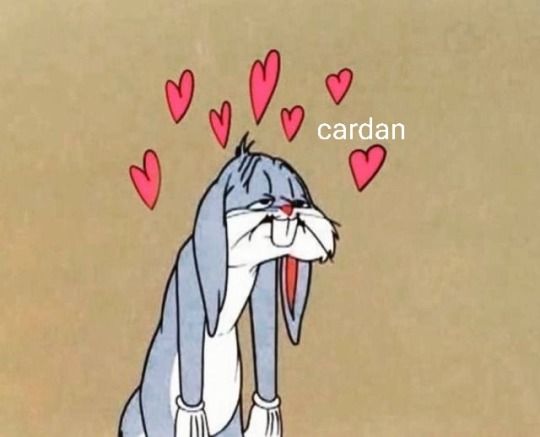




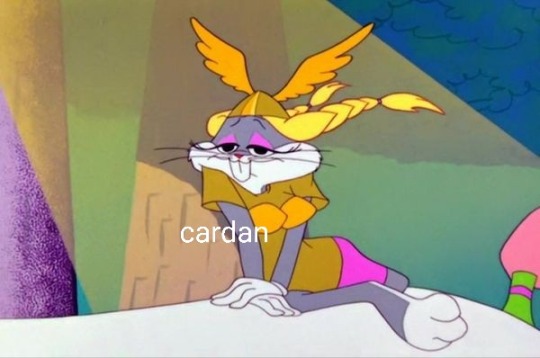



#greenlight playing rn#my cousin rated you're losing me an 8#our cat is leaving:(#cardan greenbriar#jude duarte#jurdan#the cruel prince#the wicked king#the queen of nothing#the folk of the air#tfota#tfota memes#holly black#holly blacj#chai and anna#incorrect tfota#bugs bunny
55 notes
·
View notes
Text










Lord Commander Harbard -- For @arrianaestheim
#stephic edits#my edits#asks#arrianaestheim#final fantasy xvi#ffxvi#final fantasy xvi spoilers#ffxvi spoilers#sleipnir harbard#sleipnir#gifs#because you asked so nicely#c:#pulling my leg and making me edit this handsome beautiful sassy jerk#8/8 rate great#that last gif has me in a chokehold
163 notes
·
View notes
Text
The duality of man is when you love Hadestown so much that you hate Hadestown
#me being me#idk something something show getting generic#like it’s still a good show but a good show and 4/5 and 8/10 rating for a show such as hadestown is shameful#I do think that hadestown should hit like a life changing event that made me fall in love with it#not like some generic Broadway/WE show that you see and vaguely remember liking a year after#and like it’s kinda sad to understand that it doesn’t quite hit like this now#either because of acting choices of some folks (which tbh not fully their fault and I wrote a post about it)#either because Anaïs decides to make a lyric change which is like the most obvious downgrade#that it makes me think ‘oh the show thinks I’m stupid’#instead of idk making the one change people have been complaining for years#like even fuck it just idk leave what works working#idk I feel like seeing WE made me thinking about it more#and I did enjoy the show a lot and I had fun#but also I keep thinking how some small bits didn’t fit and the show didn’t hit as it should#which makes me feel of people who will experience ht for the first time and might not understand the show’s full impact like I did#idk just thoughts
27 notes
·
View notes